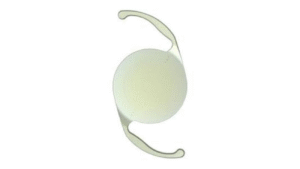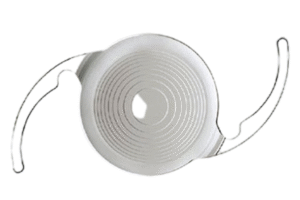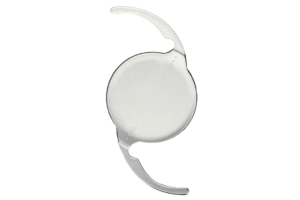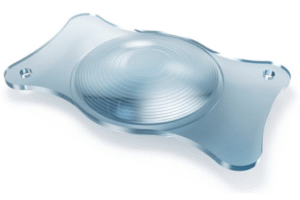Do you still need glasses after cataract surgery?

Cataract surgery is one of the most common and effective procedures in eye care today. With advancements in technology, the surgery not only removes cloudy lenses but also offers an opportunity to correct vision problems.
A common question we hear is:
“Will I still need glasses after cataract surgery?”
The answer depends on several factors including the type of intraocular lens (IOL) used, your eye health, and your vision goals. Let’s explore this in detail.
Table of Contents
ToggleUnderstanding cataract surgery
Cataracts occur when the natural lens in your eye becomes cloudy, affecting your ability to see clearly. During cataract surgery, this cloudy lens is removed and replaced with a clear artificial lens called an intraocular lens (IOL). The type of IOL implanted plays a crucial role in determining your need for glasses post-surgery.
Types of Intraocular Lenses (IOLs)
1. Monofocal IOLs

- Correct vision at one distance—usually far.
- You may still need glasses for reading or intermediate vision (e.g., using a computer).
Most common and usually covered by insurance.
2. Multifocal IOLs

- Designed to correct vision at multiple distances (near, intermediate, and far).
- Can significantly reduce your dependence on glasses, though some people may still need them for certain tasks.
- May cause halos or glare in some cases.
3. Toric IOLs

- Specifically designed for people with astigmatism.
- Corrects both cataract and astigmatism to reduce reliance on glasses.
- May still require glasses for near work, depending on the design.
4. Extended Depth of Focus (EDOF) IOLs

- Offer a continuous range of vision from distance to intermediate.
- You might need reading glasses for fine print but generally enjoy good functional vision.
Factors that Influence the Need for Glasses
- Your lifestyle and vision goals: If you spend a lot of time reading or working on screens, your IOL (intraocular lens) choice becomes crucial. Monofocal IOLs may require you to wear reading or computer glasses, whereas multifocal or trifocal IOLs can reduce your dependency on glasses for various distances. Discussing your daily activities and preferences with the best ophthalmologist in Ahmedabad can help you make the right decision.
- Your existing eye health: Eye conditions like glaucoma or macular degeneration can impact your final visual outcome. In such cases, monofocal IOLs combined with prescription glasses are often recommended. Tinted or contrast-enhancing glasses may also be beneficial in improving vision quality.
- Precision of surgery: Although modern cataract surgery uses advanced technology and precise measurements, minor refractive errors can still occur, sometimes resulting in a slight need for corrective glasses.
- Wound healing and residual prescription: Every patient heals differently. Variations in healing can lead to slight residual refractive errors, requiring minor prescription glasses after surgery.
Conclusion
While many patients enjoy clear, glasses-free vision after cataract surgery—especially with advanced IOLs—some may still need glasses for reading or specific tasks. The good news is that you have options, and the choice of IOL can greatly influence your post-surgery lifestyle.
If you’re planning cataract surgery, let the experts at Krisha Eye Hospital in Ahmedabad help guide you toward crystal-clear vision tailored to your daily life.
Book your consultation today and take the first step toward sharper, more confident vision with our advanced cataract care.
Author bio
Dr. Dhwani Maheshwari, an esteemed ophthalmologist with over 10 years of experience, leads Krisha Eye hospital in Ahmedabad with a commitment to advanced, patient-centered eye care. Specializing in cataract and refractive surgery, Dr. Maheshwari has performed more than a thousand successful surgeries. Her expertise lies in phacoemulsification, a technique recognized for its precision in cataract treatment.
Dr. Maheshwari’s educational journey includes an MBBS from Smt. NHL MMC, a DOMS from M & J Institute of Ophthalmology, and a DNB in Ophthalmology from Mahatme Eye Bank Eye Hospital, Nagpur. She also completed a fellowship in phacoemulsification at Porecha Blindness Trust Hospital, further enhancing her surgical skills. In addition to her work at Krisha Eye Hospital, Dr. Maheshwari serves as a consultant ophthalmologist at Northstar Diagnostic Centre.
Under her leadership, Krisha Eye Hospital aims to bring all super specialties under one roof, offering comprehensive eye care solutions for all vision needs.
FAQs
No, your prescription will likely change after surgery, so old glasses won’t provide the correct vision correction. New glasses may be prescribed after healing is complete.
Typically, your eye doctor will evaluate your vision 3–6 weeks post-surgery to determine your final prescription, once your eyes have fully healed.
Yes, most people experience improved night vision after surgery. However, if you experience glare or halos (especially with multifocal lenses), consult your doctor before driving at night.
No, cataracts cannot return once the natural lens is removed. However, a condition called posterior capsule opacification (PCO) can mimic cataract symptoms and may require laser treatment.
No, cataract surgery is usually done one eye at a time, typically a few days to a few weeks apart, to allow healing and assessment.
Premium IOLs (like multifocal or EDOF) can significantly reduce the need for glasses, but complete freedom from glasses is not guaranteed for all activities or all patients.
If you require glasses and don’t wear them, it can lead to eye strain, headaches, and blurred vision, especially during near or detailed work.
If visual results aren’t satisfactory, options may include a change in prescription glasses, LASIK enhancement, or in rare cases, IOL exchange.
